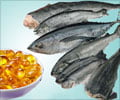A symbolic tribute to the role football played in shaping resistance at one of the most notorious penal colonies of the last century was highlighted by FIFA yesterday.
A symbolic tribute to the role football played in shaping resistance at one of the most notorious penal colonies of the last century was highlighted by FIFA yesterday.
In an historic move, they held an executive committee meeting on Robben Island, now a popular tourist attraction, ahead of the draw for the 2010 World Cup Friday.It was a gesture that highlighted how the game played an important role in the lives of political prisoners, most famously Nelson Mandela and Jacob Zuma, jailed by South Africa's old apartheid government.
Many of them were passionate about football and used the game to help find relief from their grim existence.
It is a little-known story that has come into focus with South Africa hosting the continent's first World Cup next year.
"This was more than a historic day for FIFA and myself because Robben Island has written a part of the story of humanity and a very important one," said FIFA president Sepp Blatter.
"It is linked with the story of a revolution by young people against a political system to which they had no access.
Advertisement
The island fortress, 30 minutes off the Cape Town coast, was meant to break the men's spirits as well as their bodies, but football helped keep them sane.
Advertisement
But Mandela, later to become South Africa's first black leader, was kept in isolation with other high-risk prisoners and was not allowed to play.
"He used to watch us from his cell window, standing on a chair or a box," said Mark Shinners, who served a combined 23 years on the island between 1963 and 1990 for conspiring to overthrow the erstwhile whites-only regime.
"But eventually even that was taken away from him."
Warders wouldn't allow inmates a football at first so they tied rags together and played "matches" in their cells, but these were quickly broken up.
Several prisoners started writing letters of complaint, knowing it was within their rights to be allowed to exercise, but it took three long years before authorities finally caved in and let them have a ball.
They soon created a league and it became so serious that the warring factions at the time, the African National Congress and the Pan Africanist Congress, put aside their differences.
It culminated in the formation of the Makana Football Association in 1967, named after a prophet banished to the island in 1819.
"This place represents a triumph of the human spirit," said another former prisoner Tokyo Sexwale, who served 13 years and is now a member of FIFA's fair play committee and a powerful minister in Zuma's government.
"We put rags together to make footballs and we used to kick them around in our cells. It was illegal to have a proper ball at the time but we used football as a tool of resistence to unite ourselves.
"And now we have FIFA holding an executive committee meeting here."
They put in place the same structures that would apply to any league, based on FIFA frameworks, publishing tables, fixture lists and detailed minutes of meetings.
There were even authorised transfers, often written on tiny scraps of paper.
Many prisoners said organising and running such a league helped prepare them for life after Robben Island.
They remember when news filtered through in 1964 that FIFA had banned the South African Football Association on the grounds of racism, knowing then that they were winning their battle for equality.
"FIFA played an important role by applying sanctions," Sexwale said.
"There is a direct link between South Africa hosting the World Cup and the role played by FIFA against apartheid."
FIFA reinstated South Africa in 1992 and in 2004 named it host for the 2010 World Cup.
In 2007, the Makana Football Association was officially recognised by FIFA.
Source-AFP
RAS








